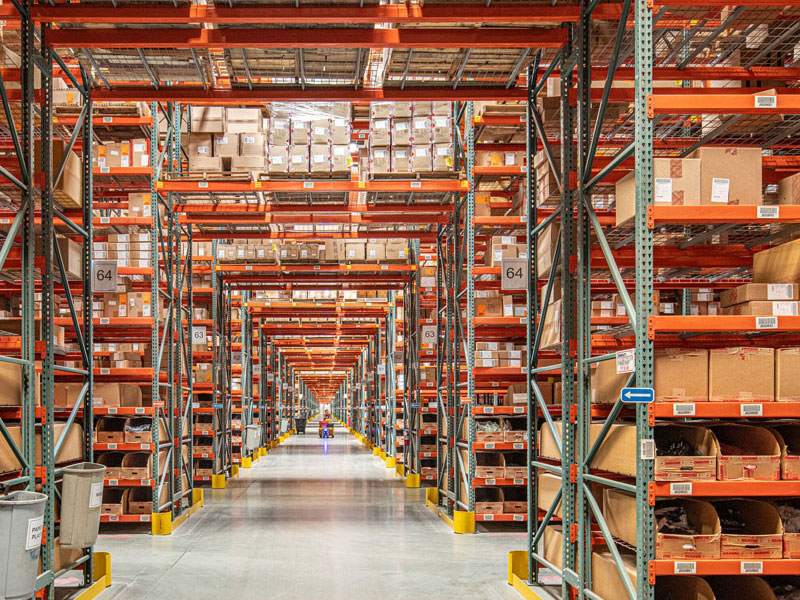Storing inventory is a fundamental aspect of running any business that deals with physical goods. At Storage Solutions, we provide a range of Inventory Storage Solutions tailored to meet the diverse needs of businesses in Jordan. Whether you’re a small startup or a large enterprise, effective inventory management is crucial for maintaining smooth operations and ensuring customer satisfaction. In this article, we explore various storage options, their benefits, and how our services can help your business thrive.
Understanding Inventory Storage Solutions
Inventory storage solutions are systems designed to help businesses store, manage, and track their inventory efficiently. These systems include physical equipment such as racks, shelves, pallets, and bins, as well as strategic approaches to storing inventory. Choosing the right inventory storage system depends on various factors, including business size, product types, and storage requirements.
Types of Inventory Storage Solutions
1. Self-Storage Units
When starting out, many businesses opt for self-storage units due to their cost-effectiveness and ease of access. Self-storage units are ideal for businesses with limited inventory and budget constraints. These units can be used to store excess inventory, seasonal items, or business records.
Pros:
- Affordable and flexible
- Easy access to stored items
- Suitable for small to medium-sized inventories
Cons:
- Limited space for growing businesses
- Potential for disorganization and mismanagement
- Lack of advanced inventory management tools
2. Traditional Warehousing
As businesses grow, traditional warehousing becomes a more viable option. Warehouses provide a dedicated space for storing large volumes of inventory, ensuring better organization and inventory management. Renting warehouse space from a local warehousing company in Jordan can be a cost-effective solution compared to building your own facility.
Pros:
- Ample storage space
- Enhanced control over inventory handling
- Potential for integrating inventory management software
Cons:
- Higher costs compared to self-storage
- Need for additional workforce to manage operations
- Potential underutilization of space if not managed properly

3. Third-Party Logistics (3PL) Providers
For businesses looking to outsource their inventory management and fulfillment processes, partnering with a 3PL provider is an excellent option. 3PL providers offer comprehensive inventory management services, including storage, picking, packing, and shipping, allowing businesses to focus on core activities.
Pros:
- Expertise in inventory and fulfillment management
- Multiple fulfillment centers for optimized delivery
- Access to advanced inventory tracking and management tools
Cons:
- Higher costs than self-storage or traditional warehousing
- Less direct control over inventory
- Dependence on third-party service quality
Choosing the Right Warehousing and Inventory Storage Solution
Selecting the appropriate inventory storage solution depends on various factors, including the size of your business, the volume of inventory, and your long-term growth plans. Here are some tips to help you make an informed decision:
- Assess Your Storage Needs: Determine the amount of space required based on your current inventory and projected growth.
- Consider Accessibility: Ensure that your chosen storage solution provides easy access to your inventory, especially if you need to fulfill orders quickly.
- Evaluate Costs: Compare the costs of different storage options, including rental fees, workforce expenses, and management tools.
- Plan for Scalability: Choose a solution that can grow with your business, allowing you to scale your operations without major disruptions.
Inventory Management Best Practices
Efficient inventory management is key to maximizing the benefits of your storage solution. Here are some best practices to consider:
- Set Reorder Points: Establish reorder points for each SKU to ensure you never run out of stock.
- Implement Inventory Tracking: Use inventory management software to track inventory levels, movement, and order fulfillment.
- Regular Audits: Conduct regular inventory audits to ensure accuracy and identify any discrepancies.
- Optimize Space Utilization: Arrange your inventory strategically to make the best use of available space and improve accessibility.
Conclusion
At Storage Solutions, we are committed to providing top-notch inventory storage solutions for businesses in Jordan. Whether you need self-storage units, traditional warehousing, or comprehensive inventory management services, we have the expertise and facilities to meet your needs. Contact us today to learn more about how we can help you optimize your inventory management and support your business growth.
For more information or to request a quote, please visit our website or contact our fulfillment experts. Let us help you take your inventory management to the next level and boost your business’s efficiency and productivity.

